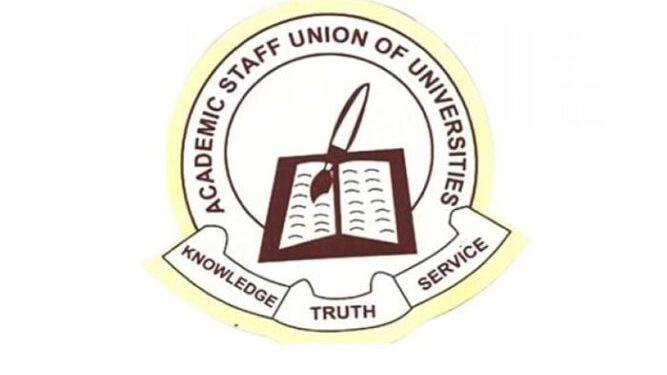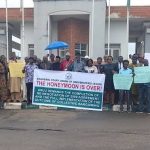The Academic Staff Union of Universities has declared a two-week total and comprehensive warning strike across all public universities in Nigeria, signaling a fresh disruption in the country’s tertiary education system.
The announcement was made by the Union’s National President, Prof Chris Piwuna, during a press briefing at the University of Abuja on Sunday. He stated that the strike would commence from midnight on Monday, October 13, 2025.
Piwuna explained that the decision followed the expiration of the 14-day ultimatum issued on September 28, 2025, noting that the Federal Government had failed to meet the critical demands outlined in ASUU’s National Executive Council resolutions.
“Compatriots of the press, it goes without saying that there is nothing sufficient on ground to stop the implementation of the ASUU-NEC’s resolution to embark on a two-week warning strike at the expiry of the 14-day notice,” he said. “Consequently, all branches of ASUU are hereby directed to withdraw their services with effect from midnight on Monday. The warning strike shall be total and comprehensive as agreed at the last NEC meeting.”
This move comes despite ongoing negotiations between the union and the Federal Government aimed at averting industrial action. The discussions have centered on unresolved issues such as lecturers’ welfare, university funding, and the full implementation of the 2009 ASUU-FGN Agreement.
Earlier in the week, the Minister of Education, Dr Tunji Alausa, disclosed that talks had reached the final phase. He highlighted government efforts, including the release of N50 billion for Earned Academic Allowances and the inclusion of N150 billion in the 2025 budget for needs assessment, to be disbursed in three tranches.
However, ASUU maintains that these interventions remain inadequate and lack concrete timelines, a concern that continues to fuel mistrust between the union and government.
The impending strike raises fresh concerns for students and university administrators, as academic calendars risk further disruption, with potential ripple effects on graduation timelines and admissions.










